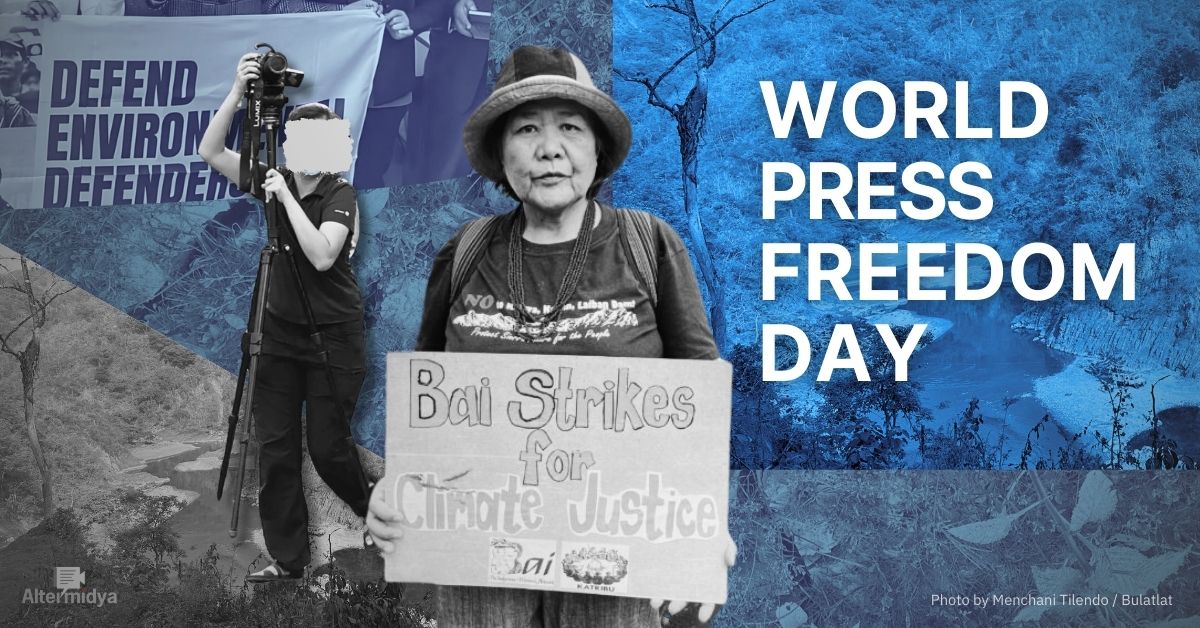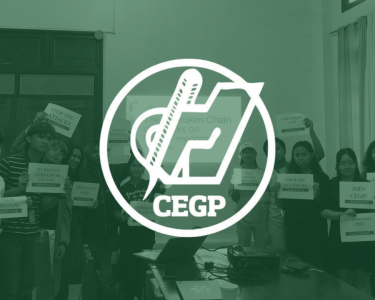May 3, 2024
ALTERMIDYA
The world celebrates press freedom today with a spotlight on the crucial role of the media in covering the environmental crisis. Indeed, the task of journalists to provide timely and accurate information on the environment, and to hold governments and corporations accountable for their role in environmental destruction cannot be overstated.
By putting a spotlight on human rights, economic inequality, and injustices in relation to environmental crises, independent journalists are able to help make the public aware of the actions that we should collectively take to save the planet.
For the independent media, reporting on the environment is integral with the issue of human rights. Independent journalists — who tell the stories of the communities on the frontlines of the climate crisis — cannot turn a blind eye on the continuing attacks against people fighting for their land, livelihood, and life.
Such is the case, for instance, of fisherfolk displaced by reclamation projects in Manila Bay, or the indigenous people charged with terrorism cases for defending their ancestral lands against construction of large dams and mining projects in the Cordillera region.
Over the last two decades, more than three hundred individuals have been killed in the Philippines for their environmental advocacies, making the country one of the most dangerous places for individuals who oppose projects critical to the environment.
Journalists covering environmental stories are not spared from these attacks. They face repression for reporting the impact of harmful projects on the environment and the community.
This holds true for Palawan-based journalist and anti-mining advocate Gerardo “Gerry” Ortega, who was murdered in 2011 for exposing anomalies in the use of Malampaya funds. The charges filed against the alleged perpetrator, who was a local politician in Palawan, are still pending in court after thirteen years.
According to local environmental advocacy group Kalikasan, there have been at least four recorded environmental-related deaths among Filipino journalists since 2001. Journalists face other threats such as harassment, trumped-up charges, and illegal arrests.
This is the case faced by our colleague, Frenchie Mae Cumpio, who remains in jail after four years due to fabricated charges. Cumpio covered human rights violations related to the issues of drought brought by El Nino, and the disaster caused by Typhoon Yolanda on Eastern Visayas communities, among others.
The dangers faced by journalists like Cumpio and the late Ortega only underscore the importance of press freedom in exacting accountability from powerful entities behind the environment’s destruction.
This World Press Freedom Day 2024, we urge the Filipino public to take a stand against climate injustice by supporting the adjacent cause of press freedom. It is through the fearless and independent reporting of environmental journalists that our awareness of the dangers of climate change is heightened and our collective struggle for the planet strengthened.
The Altermidya Network enjoins the public in our call: Defend press freedom! Climate justice now!



